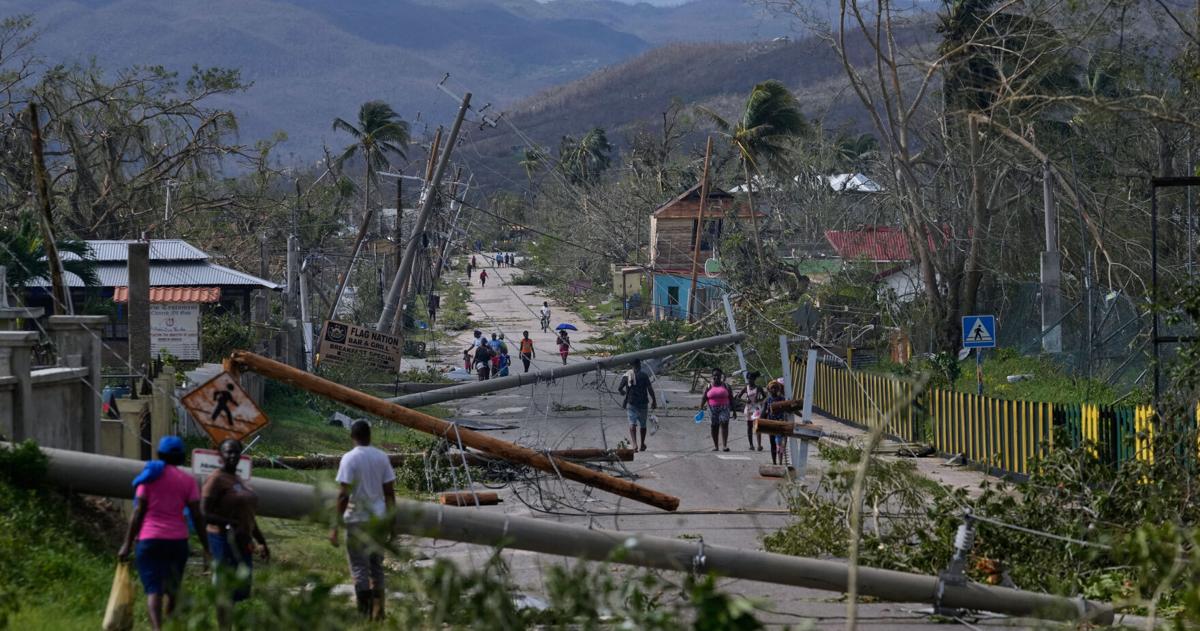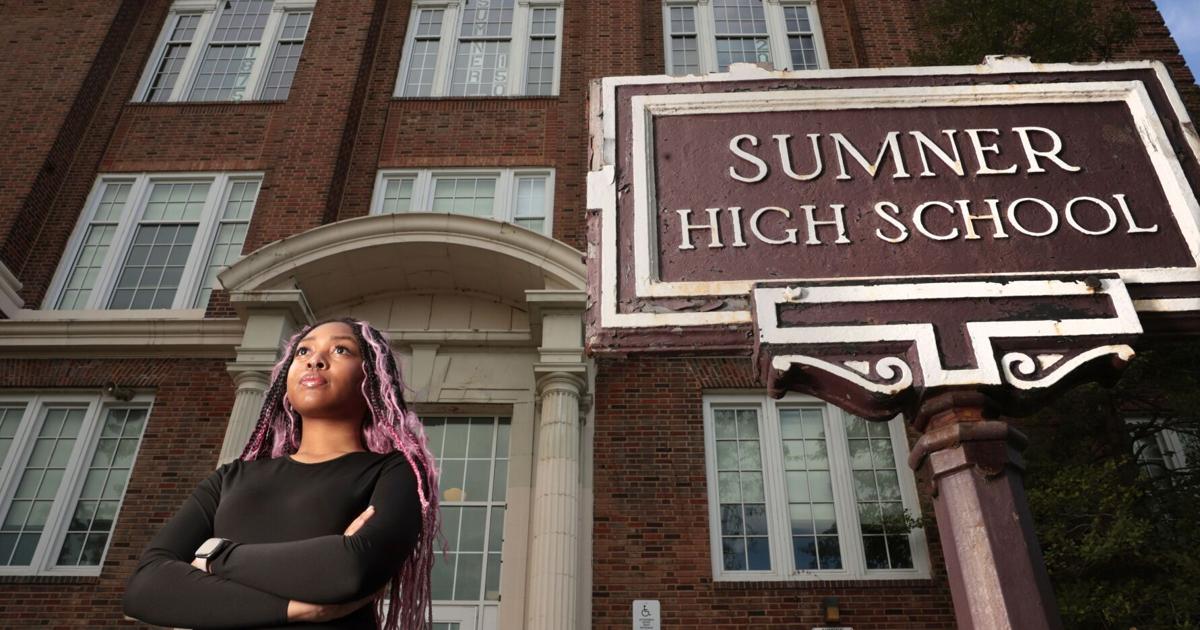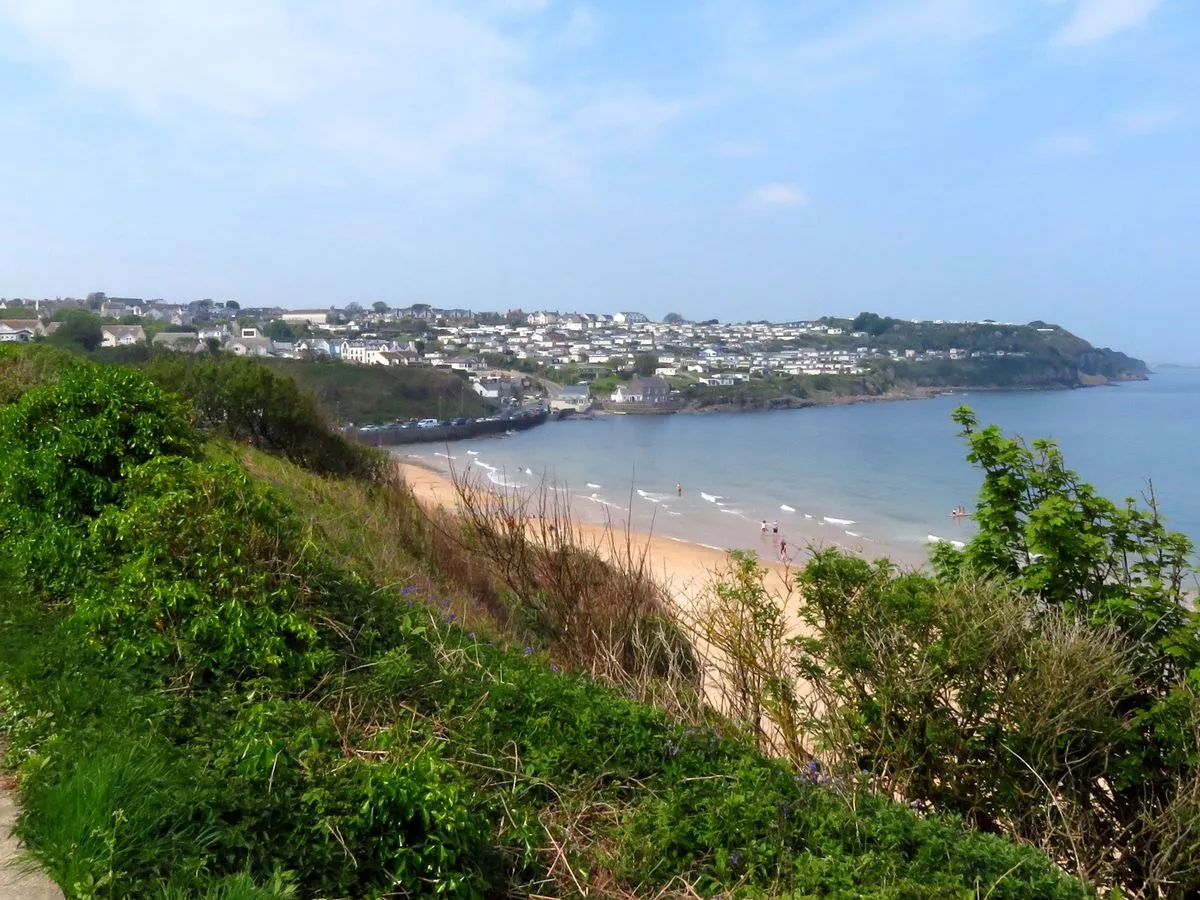Copyright Charleston Post and Courier

Adam and Jordan Simmons didn’t expect to spend their honeymoon in the eye of a hurricane. When the Cane Bay residents arrived at Excellence Oyster Bay resort just outside of Montego Bay on Oct. 21, Hurricane Melissa was just a tropical storm that was expected to impact the other side of the island, Adam Simmons told The Post and Courier. But later that week, Melissa churned into a Category 5 storm packing sustained winds of 185 mph — and the Simmons’ Oct. 28 flight back to Charleston was canceled. Resort staff moved the couple from their reserved beachfront house into a more centrally located building, then into the two restaurants staff had transformed into a storm shelter. Melissa made landfall in Jamaica on Oct. 28. The couple, along with roughly 160 other hotel guests, remained in the shelter. The wind outside whistled loudly. "There were places in the (shelter) that you could go and feel the walls/plywood-boarded areas shaking," Simmons said in a text message to The Post and Courier, their stay in the shelter had stretched more than 28 hours — most of it without air conditioning or Wi-Fi. Others in South Carolina spent the last few days checking on family, friends and colleagues on the Caribbean island. The Palmetto State has more than 11,000 residents who are from Jamaica, according to census records. Columbia and Richland County have the most, following by Myrtle Beach and the Charleston area. One Christian nonprofit in North Charleston sent a team to the island ahead of the storm with a portable water treatment system to help people as soon as possible following the storm. One of the strongest storms ever Melissa was the strongest storm to hit Jamaica since recordkeeping began 174 years ago. It ripped off roofs, toppled trees and caused heavy flooding and landslides. More than 25,000 people remained in shelters a day after the storm, and the country’s education minister said 77 percent of the island was without power. On Oct. 29, Melissa moved on to Cuba, making landfall as a Category 3 storm and forcing about 735,000 people into shelters on the eastern part of the island. Even countries outside the direct path of the massive storm, like Haiti and the Dominican Republic, felt its devastating impact. Some two dozen deaths have been reported in Haiti, with eight deaths reported in Jamaica and one in the Dominican Republic. Many remain missing. Melissa, which was downgraded to a Category 2 on Oct. 29 but was still growing in size and impacting the southeastern Bahamas. The storm, slow-moving in the Caribbean, will gain speed in the open Atlantic and likely pass just west of Bermuda late on Oct. 30. While Melissa is forecast to stay well offshore of South Carolina and move northeast, the waves from the storm could bring the coast higher tides and minor flooding, according to Brett Anderson, a senior meteorologist with AccuWeather. He previously told The Post and Courier that erosion along the state’s beaches is a possibility, as well as rip currents. Jamaican ties to the Palmetto State Norris Ellis, owner of Island Grill in Columbia, said his father, brother and cousins live in Kingston. Leading up to the hurricane, his family prepared. “They already had all their devices and stuff charged up,” Ellis said. “They know once electricity is out you’ve just got to work with it.” None of his relatives' homes were damaged by the storm, he said, though one cousin’s house under construction in Mandeville, about 60 miles west of Kingston, was flooded. After seeing early footage showing Kingston was spared from the worst impacts, Ellis said he was struck by the scale of the damage in other communities. “It’s just devastating, but they’ll pull through because they’re resilient,” Ellis said. At his restaurant, Ellis said customers have been asking whether his friends and family in Jamaica are safe. Relatives have called him to say they’re OK, he said. “As soon as they get back internet service, we’re getting more calls coming in,” Ellis said. Sasha Simpson, 34, owns Tati’s Island Cuisine, a Jamaican restaurant in an area of northeast Columbia known as the international corridor, and travels yearly to visit family in Kingston. She said her mother’s husband, who works for an electrical company, had been updating them on conditions and told her outages began days before the storm hit. Simpson said her family had not experienced flooding but often relies on the Flat Bridge, a local landmark connecting Kingston to north coast communities that was submerged by the storm. “They’re in a very poor community,” Simpson said of her relatives, which includes aunts, uncles and cousins. “The major concern is just the flooding and the water coming inside the houses because, of course, the houses aren’t made of concrete.” Her business has begun collecting nonperishable items such as canned goods, water and baby formula, as well as diapers and other essentials. “Of course, they don't have the same systems and structures and things like that, so a storm for them is times a million compared to what it is for us,” Simpson said. Back at Excellence Oyster Bay, guests were able to get outside for some fresh air and resort staff was working to find suitable rooms for shelter and showers on the property that had sustained damaged roofs, caved-in ceilings, broken windows and fallen trees, Simmons said.



